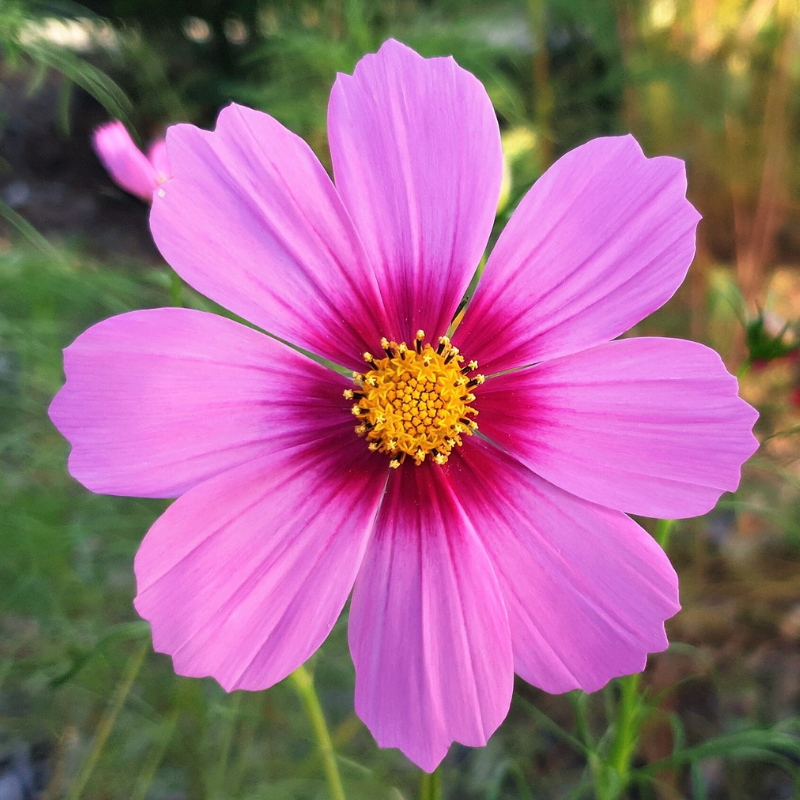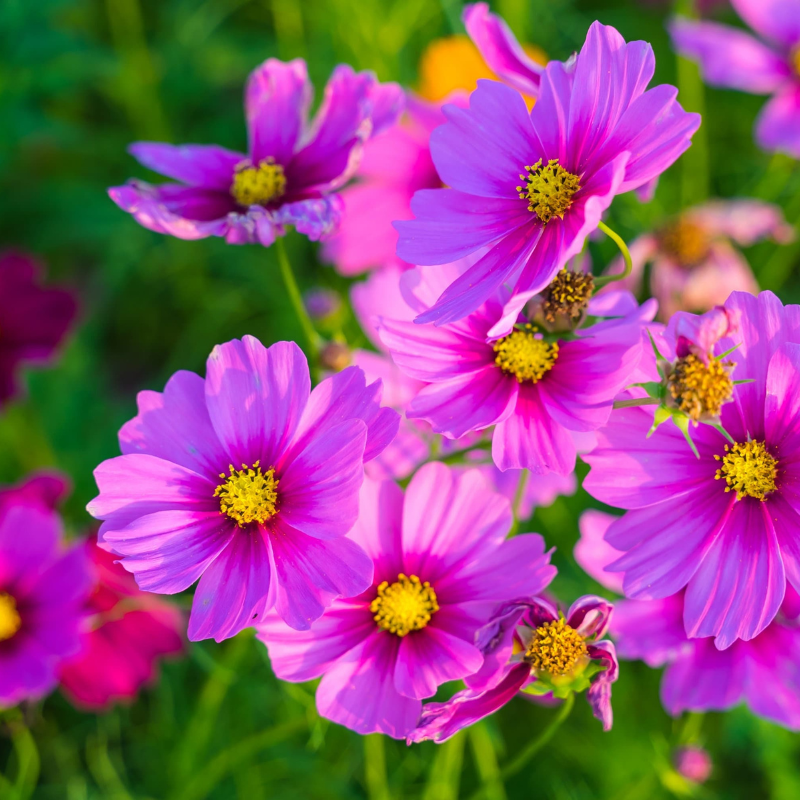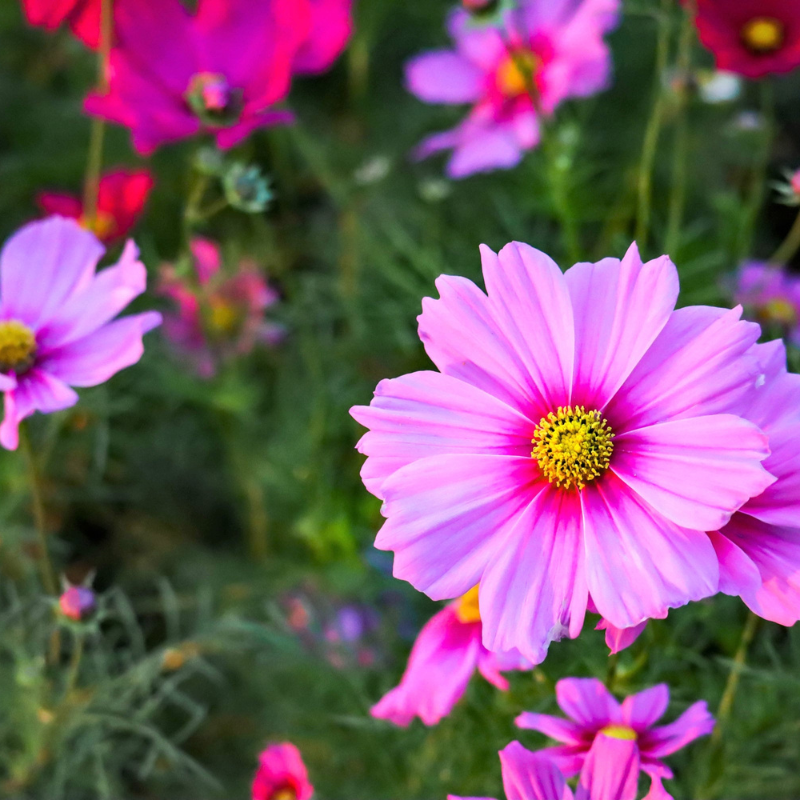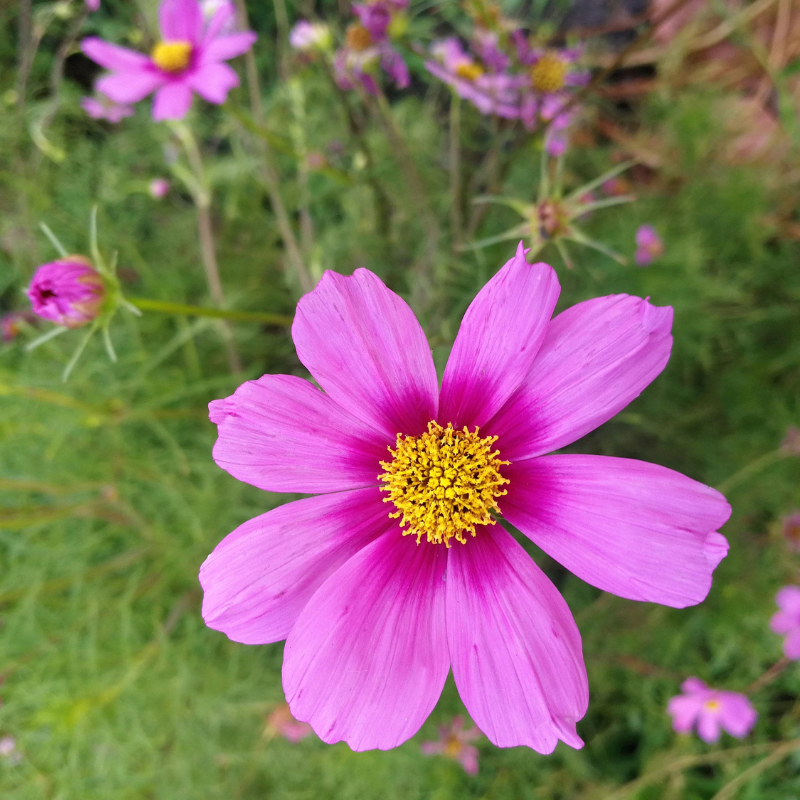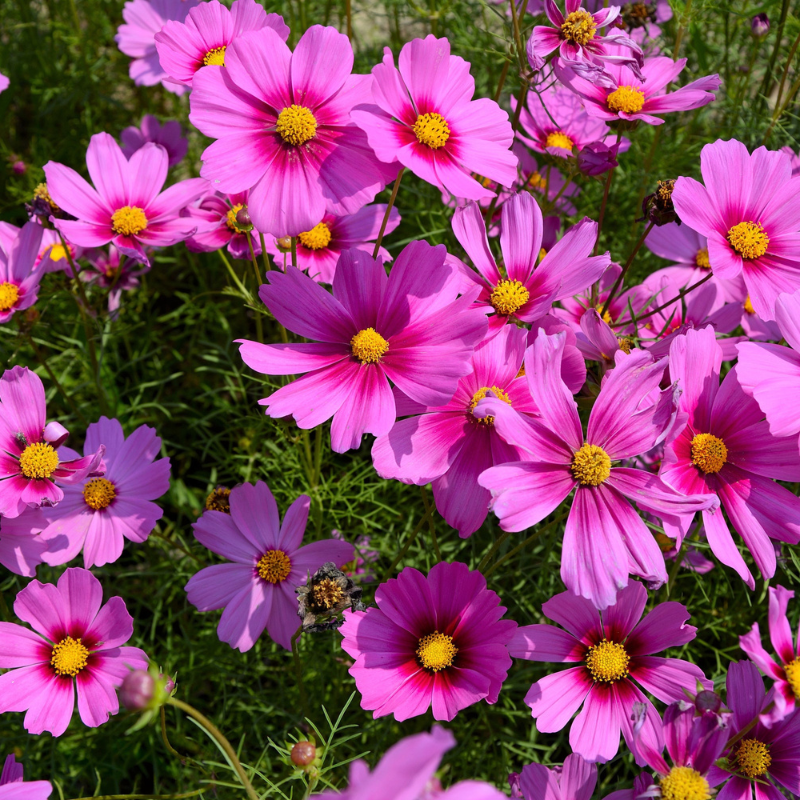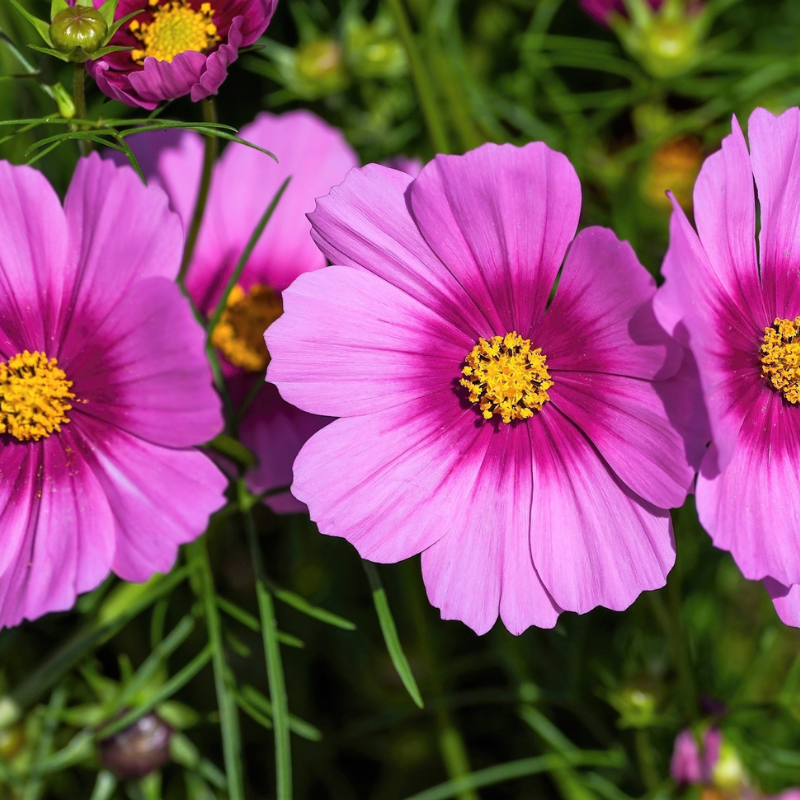- Historical context: Cosmos flowers are known for their vibrant colors and delicate, daisy-like appearance. They have been cultivated for ornamental purposes for centuries.
- Geographical origination: Cosmos flowers are native to Mexico and the southern United States, but they have spread to many parts of the world due to their popularity.
- Relevant cultural significance: In Mexico, cosmos flowers are often associated with the Day of the Dead celebrations. They are also popular in gardens worldwide for their beauty and ease of growth.
- Time period of discovery: Cosmos flowers were first described scientifically in the late 18th century by botanists exploring the Americas.
- Original habitat: The original habitat of cosmos flowers includes open, sunny areas with well-drained soil in Mexico and the southern United States.
- Notable historical uses: Historically, cosmos flowers have been used primarily for ornamental purposes in gardens and floral arrangements.
- Ideal temperature range: Cosmos flowers thrive in temperatures between 60°F and 75°F (15°C to 24°C).
- Soil type: They prefer well-drained, sandy or loamy soil with a neutral to slightly acidic pH.
- Sunlight requirements: Cosmos flowers require full sun, at least 6 to 8 hours of direct sunlight per day.
- Watering needs: They are drought-tolerant and require moderate watering. Overwatering can lead to root rot.
- Planting season: The best time to plant cosmos seeds is in the spring after the last frost has passed.
- Germination time: Cosmos seeds typically germinate within 7 to 21 days.
- Growth cycle duration: Cosmos flowers have a relatively short growth cycle, blooming within 60 to 90 days after planting.
- Common pests and diseases: Common pests include aphids and spider mites. Diseases such as powdery mildew and root rot can occur if conditions are too wet.
- Companion planting advice: Cosmos flowers pair well with marigolds, zinnias, and sunflowers. They can also attract beneficial insects like bees and butterflies.
- Common challenges and solutions: Common challenges include overwatering and poor soil drainage. Ensuring proper soil conditions and moderate watering can help mitigate these issues.
- Nutritional values: Cosmos flowers are not typically consumed, so they do not have notable nutritional values.
- Health benefits: While not commonly used for medicinal purposes, cosmos flowers are known to attract pollinators, which can benefit the overall health of a garden.
- Culinary uses: Cosmos flowers are not commonly used in culinary applications.
- Medicinal uses: There are no widely recognized medicinal uses for cosmos flowers.
- Other unique advantages: Cosmos flowers are excellent for attracting pollinators like bees and butterflies, which can help improve the health and productivity of a garden. They are also known for their ability to thrive in poor soil conditions, making them a versatile choice for various garden settings.
